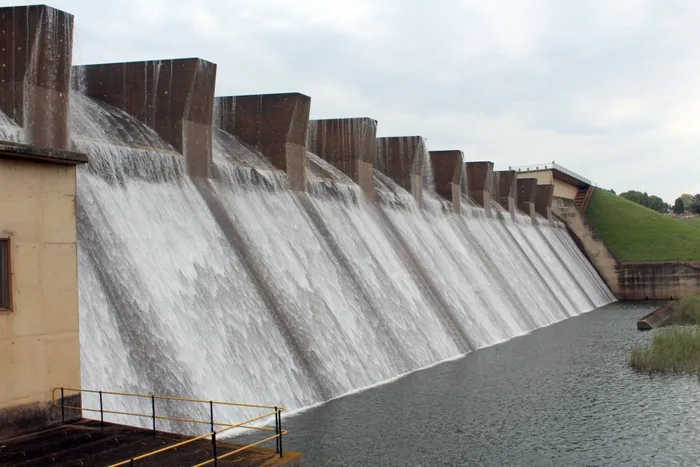Umngeni-Uthukela Water reports sharp drop in profit due to municipalities' unpaid bills
Water Authority

Midmar Dam in KwaZulu-Natal is part of the uMngeni-uThukela Water authority. The dam plays a significant role in supplying water to municipalities in the KwaZulu-Natal region, including areas like Pietermaritzburg and eThekwini. The water authority however is having trouble with municipalities not paying their water bills.
Image: uMngeni-uThukela Water
Umngeni-Uthukela Water, the government-owned water authority serving KwaZulu-Natal, has reported a dramatic fall in profits for the six-month period ending December 31, 2024, citing substantial increases in expected credit losses as the primary catalyst.
The authority's profit shrank to R592.37 million, starkly down from R1.14 billion during the same period the previous year, according to the interim results that were released Tuesday. This tumultuous decline has raised concerns over the promptness of municipalities fulfilling their payment obligations for water services.
In the results, the company revealed a revenue increase of 17%, reaching R3.84bn, largely buoyed by sales volume growth and the government-sanctioned 10% tariff hike for potable water for the upcoming fiscal year 2024/25.
Despite these gains, gross profit remained nearly static, recording minimal growth from R1.95bn to R1.99bn year-on-year.
Finance income also saw a positive trajectory, rising from R392.62m to R440.61m. However, the comprehensive income plummeted to less than half of its previous figure, coming in at R592.37m as the burden of overdue municipal payments grew more pronounced.
Umngeni-Uthukela Water attributed the sharp rise in expected credit losses—more than tripling to R553.64m million from R138.17m—to municipalities defaulting on water bills, with overdue amounts now totalling R2.72bn.
Management reported that the allowance for credit losses climbed by a staggering 56% compared to December 2023, with engagements with customers at high risk of default ongoing to establish payment plans.
In light of these financial strains, the authority described net operating cash flows dropping to R575m from R917m due to decreasing timely payments from customers.
Capital expenditure for the period also lagged behind expectations, reaching R1.32bn against a target of R1.76bn, attributed to ongoing procurement hurdles and project disruptions.
The financial report further indicated a breach of the interest cover debt covenant, with the interest cover ratio standing at 2.45 times—just under the required 2.5 times target.
While nominal interest-bearing debt slightly decreased to R1.06bn, the implications of lower-than-expected earnings before interest and tax remain a concern for stakeholders.
The authority seeks to rectify its credit risk management, aiming to close the gap by year-end.
"The credit risk is strictly monitored, and measures are in place to ensure this breach is corrected," the government-owned entity stated.
Additionally, efforts are being made to resolve contractual disputes with municipalities that owe significant amounts under their agreements.
Despite current challenges, management remained optimistic. The amalgamation of two water boards into one entity last year is viewed as a foundation for future stability, affirming that the authority is poised to overcome these financial tribulations.
BUSINESS REPORT
Related Topics: